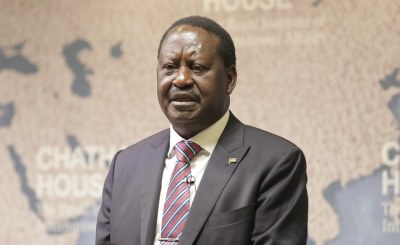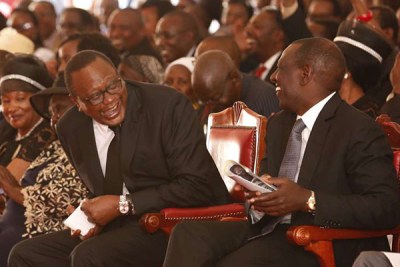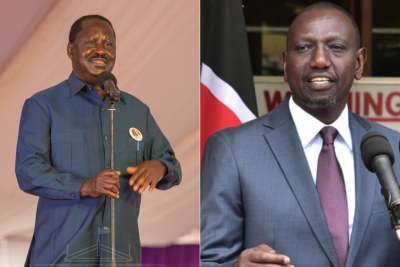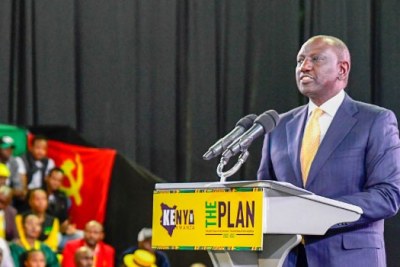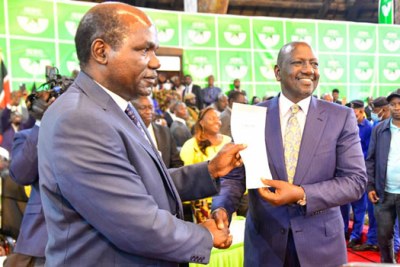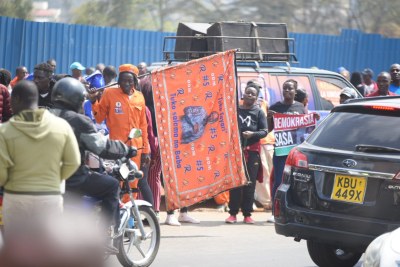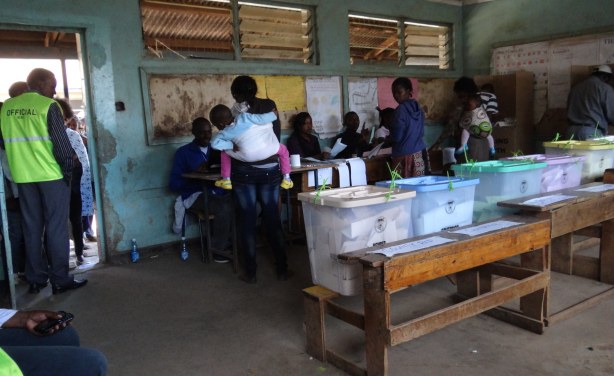-
Kenya: Elections Are Proof of Change Since 2007 Violence, But More Reform Is Needed
The Conversation Africa, 6 September 2022
Kenya's Supreme Court has confirmed William Ruto's election as president in a unanimous ruling following the submission of eight petitions seeking to annul the result. The court… Read more »
-
Kenya: Raila Odinga Should Be Thanked - His Election Losses Helped Deepen Democracy
The Conversation Africa, 6 September 2022
Kenya's Independent Electoral and Boundaries Commission announced on 15 August 2022 that Deputy President William Ruto had won the 2022 presidential election following a close,… Read more »
-
Kenya: A Triumph for Kenya's Democracy
Crisis Group, 8 September 2022
On 5 September, Kenya's Supreme Court upheld Deputy President William Ruto's victory in the 9 August presidential election. The decision concludes a hard-fought electoral campaign… Read more »
-
Kenya: President-Elect Ruto Says Kenyatta Disillusioned After Odinga Poll Loss
Capital FM, 8 September 2022
President-Elect William Ruto now says outgoing President Uhuru Kenyatta is disillusioned following the lose of his rival Raila Odinga during the recently concluded August Election. Read more »
-
Kenya: Army to Bid Farewell to Outgoing President Kenyatta
Capital FM, 8 September 2022
The Kenya Defense Forces (KDF) is on Friday set to hold a farewell ceremony for outgoing Commander-in-Chief President Uhuru Kenyatta. Read more »
-
Capital FM, 8 September 2022
Lawyer Miguna Miguna has written to the Head of Public Service Joseph Kinyua demanding facilitation to travel to Nairobi for President-elect William Ruto's swearing-in next… Read more »
Kenya's Elections Proof of Change Since 2007 Violence
The Supreme Court has confirmed William Ruto's election as president in a unanimous ruling after the submission of eight petitions to annul the result. The court dismissed all the petitions, including those submitted by the losing candidate, Raila Odinga. It found that some of the claims "were based on forged documents and 'sensational information'".
Odinga responded by saying that he had "respect for the opinion of the court". But he "vehemently disagreed with the decision" and "would be communicating in the near future on our plans to continue our struggle for transparency, accountability and democracy".
Many Kenyans feared the possibility of violence. But the campaigns and post-election period were relatively calm and peaceful. This was despite vigorously contested, close, disputed and at times tense polls.
In 2007, politicians mobilised quite openly along ethnic lines. The opposition Orange Democratic Movement, for example, cast its call for reform as a contest of 41 tribes against one.
In 2022, in contrast, both of the main alliances - Odinga's Azimio la Umoja and Ruto's Kenya Kwanza - mobilised across ethnic divides. The result is that most areas were divided in terms of support.
The rise of social media has also ensured that, while misinformation is rife, what is said in one area can quickly spread across the country. This has led to most politicians being much more careful about what they say.
Time will tell what Odinga's plans are, and how the incumbent president, Uhuru Kenyatta, will respond to events. Kenyatta has said that he will execute the orders of the Supreme Court, but also invited Kenyans "to hold all institutions to account", writes Gabrielle Lynch for The Conversation.
InFocus
-
President-Elect William Ruto says he will not interfere with outgoing president Uhuru Kenyatta's retirement and will accord him the respect he deserves. Speaking Read more »
-
Azimio presidential candidate Raila Odinga' says he has accepted the Supreme Court verdict upholding the election of William Ruto as the 5th president of the Republic of Read more »
-
President-Elect William Ruto's victory has been confirmed by the country's Supreme Court which dismissed key issues raised by the petition that sought to have it nullified.Read more »
-
President-Elect William Ruto has asked the Supreme Court to reject the temptation of setting a "dangerous trend" of nullifying presidential elections in the country once any Read more »
-
Capital FM reports that Raila Odinga's Azimio La Umoja One Kenya coalition has filed a petition in the Supreme Court seeking to overturn President-Elect William Ruto's victor Read more »
